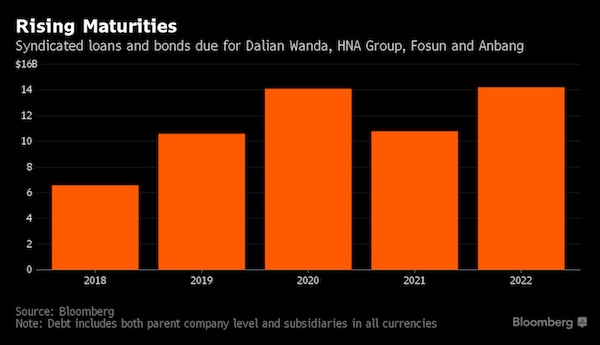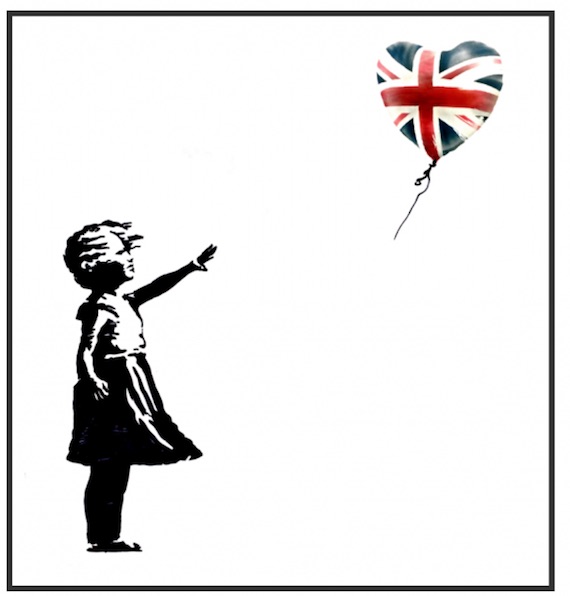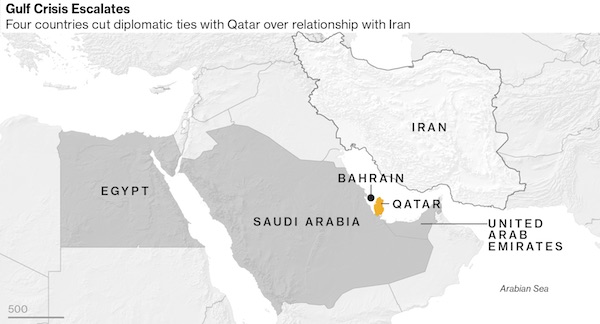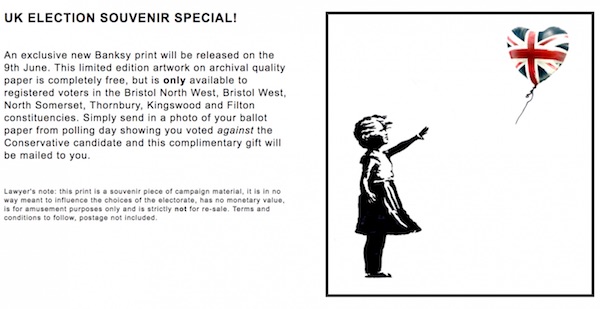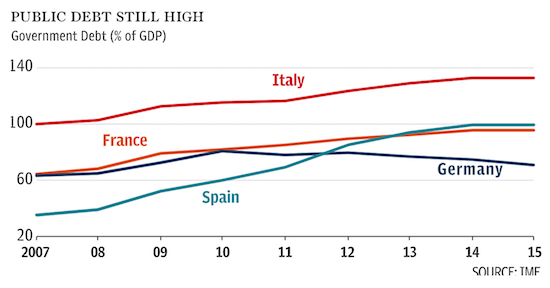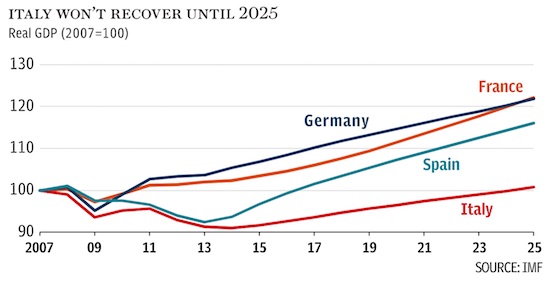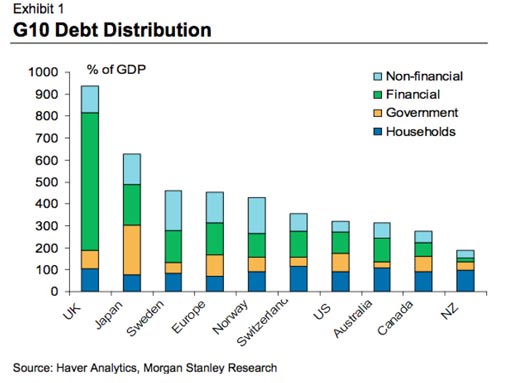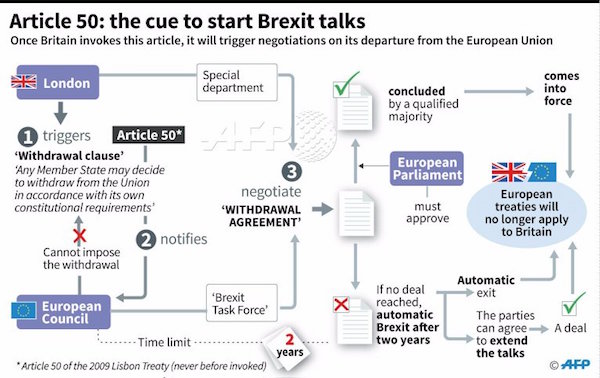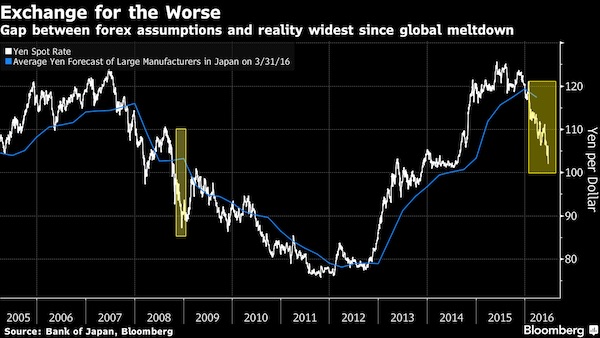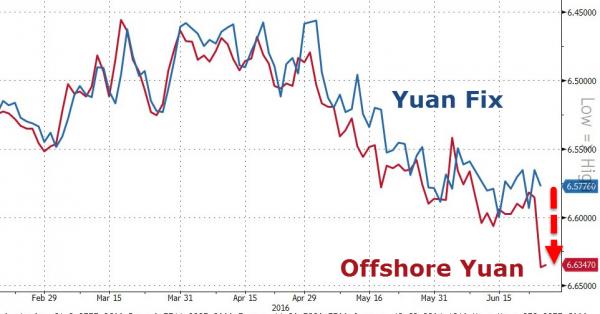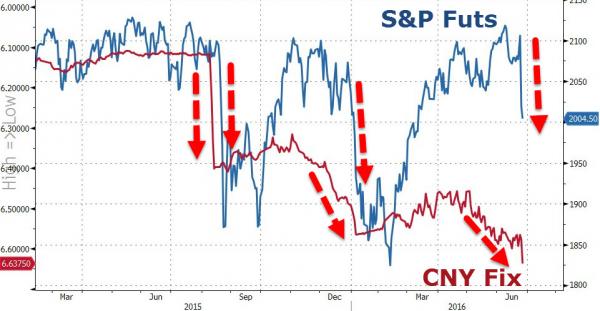
Piet Mondriaan The Flowering Apple Tree 1912


Two Mothers watching over their sons. Same place in the world, 2,000 years apart

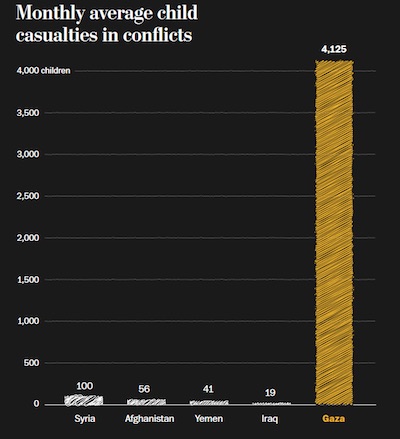

Galloway
Those lies have fuelled a genocide
The truth of what happened on October 7 is beginning to emerge.
Emerging not from the western press but from the Israeli media, and from the Israeli public who are a switched on and Internet savvy public.
And the latest revelation is the… pic.twitter.com/KbUWF22axb
— George Galloway (@georgegalloway) November 13, 2023



Not Borat
https://twitter.com/i/status/1724175188638511544



Gaza gas
"This is the REAL casus belli for Israel’s declaration of war on Hamas: The plan for Israel to supply natural gas to Europe "pic.twitter.com/zSjgOmayHL
"In December 2022, Netanyahu came along becoming the prime minister of Israel for the sixth time. And he offered the US and the UK…— Robin Monotti (@robinmonotti) November 14, 2023



Shamir
https://twitter.com/i/status/1723943189462073730

Gilles Devers is one of the most veteran lawyers in France, who in just 10 days gathered an army of lawyers from all the continents of the world to prosecute Israel for its war crimes against the Palestinians.
Lawyer Giles Devers is promising the Israeli occupation with a dark… pic.twitter.com/9h2iPwF5oD
— Daniella Modos – Cutter -SEN (@DmodosCutter) November 13, 2023


“..accuses the president of being “complicit in genocide..”
• State Department Memo Blasts Biden Over ‘Misinformation’ on Gaza War (Sp.)
One hundred State Department and USAID employees have signed a memo accusing the Biden administration of “spreading misinformation” about the war in Gaza and charging Israel with carrying out “war crimes” by cutting off electricity to the enclave, limiting aid deliveries and mounting attacks which have displaced hundreds of thousands of civilians.The five-page memo, excerpts of which were obtained by US media, accuses the president of being “complicit in genocide,” attacks him for questioning the number of lives lost in Gaza amid Israel’s campaign, and demands that the US government “advocate for the release of hostages by both Hamas” and by Israel, including “thousands” of Palestinians it says are being held by the Israelis “without charge.”
Accusing the administration of “doubl[ing] down on our unwavering military assistance [to Israel] without clear or actionable redlines,” the memo argues that the White House and members of the National Security Council have “displayed a clear disregard for the lives of Palestinians, a documented unwillingness to de-escalate, and, even prior to October 7, a reckless lack of strategic foresight.” The cutting memo appears to be the second of its kind since the media publication of excerpts from a separate letter by staffers on the Biden administration’s handling of the Gaza crisis last week. “We must publicly criticize Israel’s violations of international norms such as failure to limit offensive operations to legitimate military targets,” the earlier memo, excerpts of which were reported on Saturday, said. “When Israel supports settler violence and illegal land seizures or employs excessive use of force against Palestinians, we must communicate publicly that this goes against our American values so that Israel does not act with impunity,” it added.
The memos are the latest sign of widespread internal dissent in the State Department over the US handling of the Gaza crisis. Last month, Josh Paul, a director at State’s Bureau of Political-Military Affairs, publicly resigned and warned in a letter that the US is “repeating the same mistakes we have made these past few decades” by “blindly” supporting the Israelis, and saying he would not “be a part of it for longer.” Last week, more than 500 former Biden 2020 campaign staffers signed a letter “imploring” the president to “step up” and “be a leader we can be proud of in the face of injustice” in the Palestinian-Israeli crisis. Expressing “horror” over the October 7 Hamas attacks, the staffers stressed that their violence did not justify what Israel is doing in the Gaza Strip.
Biden Israel
Joe Biden has long been, and continues to be, one of the most devoted, stalwart and unflinching supporters of Israel in all of DC, in either party — not just being pro-Israel but adamantly advocating that the US fully arm and fund it.
Pure consistency over many decades:🇺🇸🇮🇱 pic.twitter.com/T05NI0OA2d
— Glenn Greenwald (@ggreenwald) November 13, 2023

“For now, the IDF are staying in their tanks. But sooner or later, they will have to engage with Hamas on foot. So, the fight with Hamas has barely begun.”
• The Unspoken Elephant in the Room of Netanyahu’s Intent in Gaza (Crooke)
What is the ‘elephant’ (or elephants) in the room? Blinken’s recent regional diplomacy was ‘a bust’. None of the regional leaders that Blinken met would talk further about Gaza beyond demanding stridently, ‘no Palestinian population displacement into Egypt’ a ‘stop to this madness’ – the carpet bombing of Gazans – and the demand for an immediate ceasefire. And Biden’s calls for a ‘pause’ – softly, at first, and the more strident now – is being bluntly ignored by the Israeli government. The spectre of President Carter’s impotence during the Iran hostage crisis hangs ever more soberly in the backdrop. The truth is that the White House cannot force Israel to do its will – the Israeli lobby holds the more clout in Congress than any White House team. Thus, ‘no exit’ from the Israeli crisis is readily to be seen. Biden ‘made his bed’ with the Netanyahu cabinet and must live with consequences.
Impotence then, as the Democratic Party fractures beyond the simplistic division between centrists versus progressives. The polarisation emanating from the ‘no ceasefire stance’ is having stark destabilising effects on politics, both in the U.S. and Europe. Impotence then, as the shape of the Middle East crystallises into sharp antagonism towards the West’s perceived accommodation of the mass slaughter of Palestinian women, children and civilians. The die may be too far ‘cast’ to brake the ongoing tectonic reset already underway. Western double standards are just too inescapably obvious now to the Global Majority. The large ‘elephant’ is this: Israel has dropped more than 25,000 tons of high explosives since 7 October (the 1945 Hiroshima nuke was 15,000 tons equivalent). What exactly is Netanyahu and his war cabinet’s aim here?
Ostensibly, the earlier military operation in Jabalia Camp was about targeting a Hamas leader suspected of lurking under the camp – but six 2,000 lb bombs for one Hamas ‘target’ in a crowded refugee camp? And why too the attacks on water cisterns, hospital solar energy panels and hospital entrances, roads, schools and bakeries? Bread has almost disappeared in Gaza. The UN says all bakeries in northern Gaza have closed following the bombing of the last bakeries. Clean water is desperately short, and thousands of bodies are slowly decomposing under rubble. Disease and epidemic are appearing, whilst humanitarian supplies are being tightly restricted as a bargaining tool toward further hostage releases.. Editor of Haaretz, Aluf Benn, puts the Israeli strategy very plainly:
“The expulsion of the Palestinian residents, transformation of their homes into piles of construction rubble, and the restriction of the entry of supplies and fuel into Gaza are the “tiebreaking move” employed by Israel in the current conflict, unlike all previous rounds of fighting in the Strip”. Of what are we talking here? This clearly is not about avoiding collateral civilian deaths occurring as the IDF battles with Hamas. There have been no street battles in Jabalia, or in and around the hospitals – as one soldier commented: “All we’ve done is ride around in our armored vehicles. The boots on the ground stuff will come later”. The pretext of a ‘humanitarian evacuation’ therefore is bogus. Hamas’ main forces are sitting deep underground, for the right moment to engage the IDF (i.e. when they are on foot amidst the rubble). For now, the IDF are staying in their tanks. But sooner or later, they will have to engage with Hamas on foot. So, the fight with Hamas has barely begun.

For Sleepy Joe’s re-election.
• Behind Closed Doors US Calls on Israel to Speed Up Gaza Operation (Sp.)
The United States is calling on Israel to accelerate its operation in the Gaza Strip behind closed doors as it may negatively affect President Joe Biden’s reelection bid in case of prolongation, Russian Foreign Intelligence Service (SVR) said on Monday. “The truth, however, is that Americans are having very different conversations behind closed doors with Israeli leadership. The Israelis are being encouraged to speed up the operation in order to prevent it from being delayed, as this would negatively affect Biden’s election positions,” the SVR said in a statement. The US has managed to secure the support of the United Kingdom and Germany in promoting the operation to destroy the Palestinian Hamas movement despite the rising death toll among Gaza Strip residents, the SVR added.

“.. Iranian Foreign Minister Hossein Amir-Abdollahian, who wrote on social media late Sunday [..] the “Israeli regime” had “collapsed on October 7 and is now alive” only thanks to “American artificial respiration.”
• Pentagon Asks Israel Not to Expand War to Lebanon (Sp.)
Hezbollah leader Hassan Nasrallah stopped short of opening a second front against Israel in a long-anticipated speech last week, saying that tying up substantial numbers of Israeli troops along the border was sufficient, while warning that “all options are on the table” if Israel continues it provocations. Pentagon chief Lloyd Austin ‘expressed concern’ to his Israeli counterpart Yoav Gallant about Israeli actions serving to escalate tensions along the Israeli-Lebanese border. That’s according to a report by US media citing three Israeli and American sources briefed on the Austin-Gallant phonecall, which took place Saturday. The unusually blunt request comes amid reports of concerns in Washington that Tel Aviv is deliberately trying to draw Lebanon’s powerful Hezbollah militia into the Palestinian-Israeli crisis to drag the United States and other powers into the conflict.
Israel has dismissed such claims. The official readout of the Austin-Gallant call did not mention Lebanon or Hezbollah, paraphrasing Austin as having “reaffirmed Israel’s right to self-defense,” while emphasizing “the need to contain the conflict to Gaza and avoid regional escalation.” But in private, the report indicated, Austin specifically asked Gallant not to take ‘steps that could lead to an all-out war between Israel and Hezbollah,’ and for details on Israeli strikes against Lebanon, which Israeli media have indicated have proven increasingly ineffective against Hezbollah’s fighters. Austin’s remarks come amid concerns expressed Monday by Amir-Ali Hajizadeh, a top commander in Iran’s elite Islamic Revolutionary Guard Corps, that Israel’s continued war in Gaza has already spilled over into Lebanon, and threatens to expand further.
“Today, we can see that the war has expanded and Lebanon is embroiled in it. It’s probable that the extent of clashes will grow even further. The future is uncertain, but Iran is prepared for all circumstances,” Hajizadeh said. The brigadier general, who commands the IRGC’s powerful Aerospace Force, went on to stress that Iran is not afraid of the United States, which has parked two aircraft carriers and at least one cruise missile sub in the Middle East and shored up its bases in the region with thousands of additional troops and warplanes. “The US is not threatening Iran…Iran is not in a position where anybody would seek to threaten it, as we are currently at the peak of our military strength,” Hajizadeh assured. The commander’s remarks were preceded by Iranian Foreign Minister Hossein Amir-Abdollahian, who wrote on social media late Sunday that he had informed his Egyptian counterpart, Sameh Shoukry, that the “Israeli regime” had “collapsed on October 7 and is now alive” only thanks to “American artificial respiration.”

“We must get ahead of the narrative.”
• Billionaires Are Teaming Up For Pro-Israel, Anti-Hamas Media Drive (AlJ)
A billionaire real estate tycoon in the United States is rallying support for a high-dollar media crusade to boost Israel’s image and demonise the Hamas armed group amid global pro-Palestinian solidarity protests.The media campaign — called Facts for Peace — is seeking million-dollar donations from dozens of the world’s biggest names in media, finance and technology, according to an email seen by news website Semafor. More than 50 individuals are being courted, including former Google CEO Eric Schmidt, Dell CEO Michael Dell and financier Michael Milken. They have a combined net worth of around $500bn, Semafor said. Some of the individuals, such as investor Bill Ackman, have publicly threatened to blacklist pro-Palestine students who are critical of Israel.
On October 10, Ackman wrote on X, formerly Twitter, that he and other business executives wanted Ivy League universities to disclose the names of students who are part of organisations that signed open letters criticising Israeli policies in Gaza.US billionaire Barry Sternlicht, who started the project, said the campaign would help Israel “get ahead of the narrative” as the world has reacted to the intensive Israeli attacks in the Gaza Strip. “Public opinion will surely shift as scenes, real or fabricated by Hamas, of civilian Palestinian suffering will surely erode [Israel’s] current empathy in the world community”, Sternlicht wrote in an email soliciting contributions from the wealthy figures shortly after Hamas’s October 7 attacks on Israel, according to Semafor. “We must get ahead of the narrative.”
[..] Sternlicht’s media drive aims to brand Hamas as a “terrorist organisation” that is “not just the enemy of Israel, but of the United States”, he wrote. The goal is to draw $50m in private donations, paired with a matching contribution from a Jewish charity. Hamas is already designated as a “terrorist” organisation by the US and the European Union for its armed resistance against Israeli occupation. It is unclear which figures have donated, but the campaign has raised at least a few million dollars already, Semafor reported, citing “people familiar with the matter”. It is being advised by Josh Vlasto, a communications strategist who previously worked for US Senator Chuck Schumer and former Governor of New York Andrew Cuomo, Semafor reported.
The US is Israel’s strongest global ally, providing it with billions of dollars of aid annually and staunch diplomatic backing. Despite the mounting humanitarian crisis in Gaza, the US government has continuously rebuffed global calls for a ceasefire and reiterated that Washington will not give Israel “red lines” in the war. On November 2, the US Congress passed a $14.3bn emergency military aid package for Israel. However, public support for the US’s position appears to be ebbing, with nearly half of US Democrats disapproving of how Joe Biden has handled the conflict, according to a recent poll by the Associated Press-NORC Center for Public Affairs Research.
Social media giants such as Instagram, X, YouTube and TikTok have been accused of censoring pro-Palestine voices by reducing their reach, a practice known as shadowbanning. Axios reported last month that pro-Palestine posts on TikTok were being viewed four times more than pro-Israel posts. This came as people around the world have reacted with horror to the mounting death toll in Gaza where most of the killed are civilians. Facts For Peace, the media campaign launched by Sternlicht, aims to win back public favour for Israel, posting videos on its social media pages blaming Hamas for the plight of Palestinians and denying claims of Israeli rights violations.

“How can the extraordinary situation be explained that the US, a country that demonizes its own white population, is led by neoconservatives who assert that the American people are exceptional and indispensable?”
• The War for Greater Israel and US Hegemony Is About to Begin (PCR)
Putin could have prevented the coming world war by quickly dispatching Ukraine in 2014 and by providing air defense systems for Syria, Lebanon, and Gaza against Israel and Washington’s air strikes.I would be more optimistic that we have a future if Russian media and foreign affairs analysts, such as Fyodor Lukyanov, chairman of the Russian Presidium of the Council on Foreign and Defense policy, could dispense with their rose-colored glasses that protect them from reality, and face up to facts. The massive amounts of aircraft, air defense systems, warships, troops and nuclear missile submarines the US is pouring into the vicinity of Israel is not intended for use against Hamas. The intent is to open up the Middle East for Greater Israel and to use Iran as a base from which to cause problems for Russia in Central Asia. If this agenda succeeds, nuclear war is inevitable. An agenda that leads to ashes should be denounced and avoided.
The neoconservatives who control US foreign policy have had their sights on Syria, Iran, and Hezbollah before the US invasions of Afghanistan and Iraq. These countries have been American targets since Norman Podhoretz wrote in Commentary that the US should overthrow the Middle Eastern governments. Prior to the George W. Bush regime’s invasion of Iraq, General Wesley Clark was shown a Pentagon memo that the US intended to overthrow 7 Middle Eastern countries in 5 years. The neoconservatives completely controlled US defense and foreign policy then, as they do today. This project is still the agenda, and it is unfolding before blind Russian and American eyes as I write. I often wonder if Russia, despite its overwhelming nuclear and military superiority over the West, has the ability to survive.
Russian intellectuals, media, and foreign policy analysts seem to be incapable of comprehending that the neoconservatives regard Russia as an enemy to be eliminated. Alienated by the Soviet regime, Russian intellectuals see the West as the touchstone of rationality and freedom. Can Russia survive such a delusion? Fyodor Lukyanov, for example, who is also the director of the Valdai International Discussion Club where Putin always shines, dismisses WW III as “inadmissible” because of nuclear weapons. Perhaps he was influenced by the decades of American propaganda and cannot reconcile his brainwashing with the Wolfowitz doctrine. Indeed, in my many years of being interviewed by Russian media, it is rare to come across a Russian journalist who is even aware of the Wolfowitz doctrine that the principal goal of US foreign policy is to prevent the rise of Russia or any other country capable of constraining US unilateral action.
The entirety of Putin’s travails in Ukraine is due to his inability to comprehend the agenda of the US neoconservatives. He sat there for 8 years while the US built a Ukrainian Army capable of destroying Russian Donbas before he, belatedly, acted. Putin is again sitting on his butt in the Middle East. He does nothing while the US builds up massive military power in the region except aid Washington by preventing Iran and Hezbollah from acting when they had the initiative and would have succeeded. Meanwhile his foreign policy analysts tell him that the Third World War is far off in the future, beyond his life time. How can the extraordinary situation be explained that the US, a country that demonizes its own white population, is led by neoconservatives who assert that the American people are exceptional and indispensable?

“..the military is not satisfied with the failed counter-offensive, the misuse of Western assistance and the low level of competence in Kyiv..”
• Zelenskyy Is In Conflict With Ukrainian Military – Arestovych (RT)
Oleksiy Arestovych, a former adviser to the head of the office of the Ukrainian president, has said that Volodymyr Zelenskyy is in conflict with the Ukrainian military due to the failure of the counter-offensive of the Armed Forces of Ukraine (AFU). “The president’s speech is becoming increasingly emotional because of the criticism he is receiving,” Arestovych said in an interview with El Mundo According to him, the military is not satisfied with the failed counter-offensive, the misuse of Western assistance and the low level of competence in Kyiv. Arestovych said that the position of the Commander-in-Chief of the Armed Forces of Ukraine Valerii Zaluzhnyi differs from the position of Zelensky. “Now we are faced with a situation where the commander in chief says one thing about the war and the prospects for victory, and the president says something completely different. This is not a normal situation,” the former adviser concluded. Earlier, the head of Zelenskyy’s office, Andrii Yermak, said that the Ukrainian leader and Zaluzhnyi are not in conflict and are united on key issues.

“..The fact that he was featured in The Economist to me indicates that this is British intelligence signaling that they think this Zaluzhny is their boy..”
• Nord Stream ‘Sideshow’ Conceals Zelensky vs Zaluzhny Infighting (Sp.)
US legacy media has added another layer of obfuscation and complexity to the Nord Stream cover story attempting to take the heat off Washington to blame Ukraine for the September 2022 attacks. Building on reports from earlier this year that an enigmatic “pro-Ukrainian group” rented a sailboat to carry out the attacks, released after Sy Hersh’s bombshell reporting implicating the US Navy for the acts of terrorism, the Washington Post story Saturday indicated that Ukrainian special operations forces colonel Roman Chervinsky coordinated the “brazen sabotage operation.” Chervinsky, WaPo’s story goes, “was the coordinator of the Nord Stream operation,” “managing logistics and support for a six-person team that rented a sailboat under false identities and used deep-sea diving equipment to place explosive charges on the gas pipelines.”
But in a new twist on an old narrative, the newspaper ‘revealed’ that Chervinsky, who is presently rotting in a Kiev jail on abuse of power charges, “took orders from more senior Ukrainian officials” reporting to Ukrainian Armed Forces Commander-in-Chief Valery Zaluzhny. The twist, coming amid the very public spat between Zaluzhny and President Volodymyr Zelensky over the commander’s comments earlier this month that Ukraine’s counteroffensive had reached a “stalemate,” differs radically from previous MSM reporting on the Nord Stream attacks, which stressed that the alleged Ukrainian perpetrators had no affiliation whatsoever to Ukraine’s government or military. Sources cited by WaPo in its Saturday piece similarly stressed that “the Nord Stream operation was designed to keep Zelensky out of the loop.”
Russian officials haven’t bought the new take on the story, with Duma lawmaker Alexey Chepa characterizing the newspaper’s story as an attempt by the United States and NATO to whitewash their own culpability for the Nord Stream attacks. Kremlin spokesman Dmitry Peskov said the report’s suggestion that Zelensky was kept out of the loop should be “a very alarming sign” not only for Russia, but for the collective West as well. “Because if the Kiev regime no longer controls the situation in the country, this is alarming and should also be taken account.” Retired CIA intelligence officer and former State Department official Larry Johnson also dismisses the new take on the ‘Ukraine did Nord Stream’ story, stressing that it must be viewed using a much broader lens.
“Since the Washington Post normally is the preferred mouthpiece of the CIA, you have to take this as an example of CIA propaganda to identify this individual, who has zero experience in underwater demolition operations, as sort of the mastermind of an underwater demolition operation, as just silly beyond belief,” Johnson told Sputnik. “All of this has to be viewed in the context of the growing conflict between General Zaluzhny and President Zelensky,” Johnson emphasized. “He basically has been seen as a competitor to Zelensky. The fact that he was featured in The Economist to me indicates that this is British intelligence signaling that they think this Zaluzhny is their boy. And the CIA is pushing back, saying ‘no, no, no, it’s got to be Zelensky.’ So Chervinsky is just a sideshow. When you look at the picture here, there’s nothing at all about him that would suggest an operative with any kind of competence.”
Attempts by Washington to deflect the blame for the Nord Stream attacks onto Ukraine makes sense in the context of Kiev’s gradual “abandonment” by the Biden administration, Johnson believes. “This has happened to Afghanistan. It happened in Vietnam. It’s going to happen to Kiev. They’re not winning the war. The United States is preoccupied with the war in Israel. And the United States does not have the money nor the weapons to keep Ukraine in the fight. So we’re looking for exit strategies. And right now the question is whether or not Zelensky will survive. Will he be replaced by Zaluzhny? Will there be a military coup? I think that we’re into that territory now because Ukraine has experienced absolutely zero success on the battlefield,” the observer explained.

“Western civilization has to go,” as the students chanted, and it has. In its place evil has risen.”
• The Rise of Evil as the Determinant Force in the Western World (PCR)
Normally when there is a school shooter, the media goes on and on about the right-wing gun nut who killed the kids. We learn all about him and his politically incorrect ideas and associations. No stone in his life is left unturned. But if the shooter is not a rightwing gun nut, we hear nothing about it. Moreover, as Glenn Greenwald points out, the police and the media suppress the information as it doesn’t fit the narrative. This time the shooter, or rather, murderer, was a trans woman, Audrey Hale, who shot and murdered three teachers and three nine-year olds in a Christian school in Tennessee. Her motives were political, her ideology was left/liberal, and her victims were white in a private Christian school. She left a manifesto, interest in which was non-existent among the presstitutes. The FBI and Tennessee police refused to release the manifesto. When a court ordered the manifesto’s release, the FBI and Tennessee police appealed and the appellate court stayed the court’s order.
Greenwald contrasts this behavior with what happens when the shooter is a white male who can be described as rightwing. Not only are conservative beliefs blamed, but also prominent conservative people who are alleged to have inspired the shooter. Greenwald writes: “Rumble host Steven Crowder announced he had obtained several pages of the manifesto. He published them on Twitter and his online show. The Nashville PD acknowledged their authenticity, expressed rage, and ordered an investigation to find the leaker. The pages published by Crowder of Hale’s writings contained vicious and hateful anti-white and anti-Christian sentiments, prompting the question: who in media or politics radicalized Audrey Hale to go murder people in the name of these bigotries? Yet immediately, Big Tech platforms—including Google’s YouTube and Facebook—censored Crowder’s publications. We know about them—and were able to read them—only because Twitter (X) and Rumble refused as usual to censor, highlighting yet again the vital importance of these free speech platforms.”
For many years I have documented that the overriding purpose of media, universities, the public school system, Hollywood, and the Democrat Party has been to demonize white, traditional Americans as racists, white supremacists, gun nuts, anti-semites, Russian agents, insurrectionists, domestic terrorists, and whatever else. It is extraordinary that the backbone of the United States–the white normal citizen–has been demonized, while sexual perverts and anti-Americans prevail in setting the agendas. The qualities, such as integrity, that comprised the virtues of Americans in my lifetime are no longer passed forward by education, literature, and entertainment. “Western civilization has to go,” as the students chanted, and it has. In its place evil has risen.

“Neo-Nazi ideology or nationalist ideology, unfortunately, has a very strong influence in Canada. I think this is obvious..”
• Canada Is A Hostage To Nazi Ideology – Moscow (RT)
The recent honoring of a Waffen-SS veteran in Canada’s House of Commons was hardly surprising, given the country’s history of harboring Nazi collaborators after World War II, a senior Russia diplomat told RIA Novosti on Monday. The descendants of these people lobby the government to have their ancestors whitewashed and celebrated, Dmitry Polyansky, Russia’s first deputy permanent representative to the UN, explained, referring to an incident in September involving an elderly Ukrainian-Canadian man named Yaroslav Hunka. “Neo-Nazi ideology or nationalist ideology, unfortunately, has a very strong influence in Canada. I think this is obvious,” the Russian official said. “The [Justin] Trudeau government is somewhat a hostage [to the situation].”
Polyansky noted that the large number of Nazi war criminals that entered Canada after World War II had children and grandchildren in the country, and so the situation in which Hunka, a 98-year-old veteran of the SS Galicia Division, was honored in the Canadian parliament earlier this year was hardly “surprising.” Last September, a scandal erupted when Hunka, who served with the notorious 14th Waffen Grenadier Division of the SS, which is known to have committed atrocities against Jews and Poles during World War II, received a standing ovation in the Canadian parliament with Prime Minister Justin Trudeau and Ukrainian President Vladimir Zelensky in attendance. The Waffen SS veteran was introduced as a “hero” who fought “for Ukrainian independence against the Russians” during World War II.
At the time, Canada’s immigration minister, Marc Miller, admitted that the country has “a really dark history with Nazis,” saying that at one point, “it was easier to get in [to Canada] as a Nazi than it was as a Jewish person.” Following backlash from Jewish organizations, House Speaker Anthony Rota, who invited Hunka to the event, accepted full responsibility for the incident and has since resigned. Trudeau offered “unreserved apologies” for applauding the Nazi veteran. In October, Russia’s Investigative Committee charged Hunka in absentia with genocide, claiming that archive documents serve as evidence that he and fellow SS Galicia members killed at least 500 civilians between February 23 and 28, 1944. Russian media outlets later reported that the country’s Interior Ministry placed him on its official database of wanted individuals.

“..a blatantly corrupt and ignorant attorney general in New York state can get away with bringing a politically-motivated nonsense case against the leading presidential candidate in a courtroom ruled by a judge who acts like a jester in a Shakespeare play..”
• Light in the Darkness (Kunstler)
The sun is low on the horizon all day long now, and darkness creeps in like a home invasion of your mind. Demons descend through a red and black sky and no help is on the way. Our country is so mentally hog-tied trying to unravel the twisted events of just a few years past that it has no mojo left for rationally anticipating the events of just a few years ahead. Have you ever felt more alone? This is the end-process that we’ve been softened up for: the inability to think and plan. The gigantic “intel community” evolved from something intended to act as sensitized antennae for detecting threats against our republic into what is now a remorseless mind-fucking operation against our republic. That word, by the way, derives from the Latin res publica: the public thing, a society that literally belongs to the people, who decide its affairs. Now, so much is mysteriously decided for us, and not in any good way.
It’s no wonder more than half the country can’t think straight, and it’s a whopping irony that this group comprises most of our country’s thinking class —the bureaucratic managers, the professors, the curators, the editors, the reporters lost in mis-reporting. This group used to play a critical role in the res publica: to earnestly determine what is true and what is real, and to present us with a way of understanding all that so we can think and plan. They appear to be captured by malign forces. The scribes are hard at work defending every act of official malice. The dishonesty at work is epic. You need a decoder ring to keep your mind right. You are probably desperate to understand why this is happening — how, for instance, a blatantly corrupt and ignorant attorney general in New York state can get away with bringing a politically-motivated nonsense case against the leading presidential candidate in a courtroom ruled by a judge who acts like a jester in a Shakespeare play. New York AG Letitia James gets away with it because the flagship organ of the thinking class, The New York Times, is in on the gambit. But why?
We struggle to sort this out. One explanation is that the Chinese Communist Party (CCP) has infiltrated the management of our country at every level so as to eventually conquer our territory for its resources while eliminating or enslaving the population? Surely, the CCP has made significant inroads, starting with the successful bribery and compromise of “Joe Biden,” probably other elected officials, too, in placing many CCP agents in the vast array of university research departments, NGOs, PACs, and lobbying gangs, and extending to the purchase of vital businesses and farmland to prepare the gameboard for eventual takeover. My opinion is they’ve accomplished a good bit of this, but it’s not the answer you’re seeking.

In UK politics, incompetence is a job requirement.
• Suella Braverman Sacked As Home Secretary After Article Criticising Police (G.)
Rishi Sunak has sacked Suella Braverman as UK home secretary after she was blamed for inflaming tensions over Armistice Day protests, immediately replacing her with James Cleverly, the foreign secretary. A No 10 announcement said Cleverly was becoming home secretary following “the departure from government” of Braverman. A government source earlier said that Sunak “asked Suella Braverman to leave government and she has accepted”. David Cameron, the former prime minister, was later confirmed as replacing Cleverley as foreign secretary. Braverman’s dismissal is being used by Sunak as the trigger for a wider reshuffle, with Thérèse Coffey, the environment secretary, and Steve Barclay, the health secretary, believed to be also likely to go.
Jeremy Hunt, who had been tipped to be moved as chancellor, was also confirmed as staying in post. Two junior ministers, the schools minister Nick Gibb and the health minister Neil O’Brien, announced they were stepping down from their roles. After being sacked, Braverman said “it has been the greatest privilege of my life to serve as home secretary”, adding: “I will have more to say in due course.” Jess Phillips, part of Labour’s shadow home affair team, called Braverman the “worst home secretary in living memory”, adding: “Putting aside obvious ghoulish divisions, she simply didn’t understand her job.” Ed Davey, the Liberal Democrat leader, said: “Suella Braverman was never fit to be home secretary. Rishi Sunak knew this and he still appointed her. It was the prime minister’s sheer cowardice that kept her in the job even for this long.”

Blair is back, AND Cameron is back. That’s the best Britain can do.
• David Cameron Returns To UK Government As Foreign Secretary (G.)
David Cameron has returned to government as UK foreign secretary, in a stunning comeback for the former prime minister that highlighted Rishi Sunak’s willingness to take risks as he looks to revive his political fortunes. Downing Street announced on Monday that Cameron would join the government, accepting a peerage in order to do so, as part of a wider reshuffle in which Suella Braverman was sacked as home secretary and replaced by the foreign secretary, James Cleverly. A spokesperson also confirmed Jeremy Hunt would remain as chancellor. Cameron posted on X, formerly known as Twitter: “We are facing a daunting set of international challenges, including the war in Ukraine and the crisis in the Middle East. At this time of profound global change, it has rarely been more important for this country to stand by our allies, strengthen our partnerships and make sure our voice is heard.
“While I have been out of front-line politics for the last seven years, I hope that my experience – as Conservative Leader for eleven years and Prime Minister for six – will assist me in helping the Prime Minister to meet these vital challenges.” Cameron stood down in 2016 after losing the Brexit referendum, but reportedly told friends in 2018 he wanted to return to frontline politics, preferably as foreign secretary. Since then he has maintained a relatively low profile, though he became embroiled in scandal two years ago when he lobbied government ministers to provide financing for the now-insolvent financial services company Greensill Capital.
He returned to the headlines last month when he said Sunak’s decision to cancel the HS2 high-speed train line between Birmingham and Manchester was wrong, adding: “We are heading in the wrong direction.” Cameron has also been a strong supporter of the UK retaining its commitment to spending 0.7% of gross national income on international aid, a commitment Sunak has since junked. Cameron said in his online statement: “Though I may have disagreed with some individual decisions, it is clear to me that Rishi Sunak is a strong and capable Prime Minister, who is showing exemplary leadership at a difficult time. I want to help him to deliver the security and prosperity our country needs and be part of the strongest possible team that serves the United Kingdom and that can be presented to the country when the General Election is held.”

“..the “newly elected Speaker of the House Mike Johnson (R-LA) does not have a bank account” and apparently “lives paycheck to paycheck.”
• The Sacking of the Beltway by Good Intentions (Turley)
There is a palpable level of panic that seems to have taken hold of Washington this week. Establishment figures are raising the alarm over the rise of dangerous figures as if they are the barbarians at the gate before the sacking of Rome in 410. The threat is coming from both parties in the form of the new Speaker Mike Johnson and Democratic presidential candidate Robert Kennedy Jr. They may be the worst type of barbarians because they came to this city with the best of intentions. For some in Washington, there may be nothing more unnerving than the best of intentions. This is a one-industry town where fortunes are made the old-fashioned way with influence peddling, special dealing, and pork barreling. In that world, the rise of Johnson and Kennedy are about as welcomed as a priest among the Pirates of Penzance.
Johnson is the ultimate buzz kill. Many were aghast that Johnson used his first speech as speaker to thank God and to say that he believes that God has a plan for him. That is a view shared by millions of religious Americans and it is not the first time that a politician has made such public expressions of devotion. Bill Clinton used to invoke God and salvation continually as he set physical records for debauchery. Even after his Monica Lewinsky scandal, Clinton would rally liberals to “politics and political involvement dictated by faith.” The problem is not that Johnson said it but he actually seems to mean it. I likely do not share Johnson’s views on legislating morality or the separation of church and state. However, he has always been viewed as a honest man with deep convictions. Of course, this is a city that can more easily forgive actual convictions than religious convictions.
This is a city where professed socialists and populists unapologetically give their husbands or children huge amounts of campaign funds. Rep. Maxine Waters has reportedly given her daughter over a million dollars. Confronted with millions of dollars in alleged influence peddling by the Biden family, the media has continued to maintain a lack of interest, often excusing the practice as common in Washington. Indeed, this month, NBC compared Hunter Biden tapping shady foreign figures for millions to the controversy over Nikki Haley’s daughter using TikTok. The panic over the appearance of an honest man in Congress was evident in an article by the Daily Beast when senior political reporter Roger Sollenberger declared that the “newly elected Speaker of the House Mike Johnson (R-LA) does not have a bank account” and apparently “lives paycheck to paycheck.”
Of course, surveys show that over sixty percent of Americans live paycheck to paycheck and fewer than half of Americans can cover a $1000 emergency expense. However, those are average Americans, not one of us. In this city, hard-working members of Congress plan for the future with gold bars and cash stuffed in a closet or millions transferred from corrupt foreign figures through a labyrinth of shell companies and accounts. In this city, the appearance of Johnson left people dumbfounded like seeing a Triceratops strolling down Pennsylvania Avenue. The Daily Beast’s Mike Fuller noted: “Mike Johnson doesn’t have any retirement savings, own a single stock, or have any assets at all. He has less than $5,000 in his bank account. He’s got a 250-500K mortgage, a home equity loan, and a personal loan. So what’s his retirement plan? To lobby?”

“Today I serve my country,” he said. “The question I have for you, Anthony Albanese, is who do you serve?”
• Whistleblower David McBride Declares ‘Today I Serve My Country’ (G.)
David McBride has declared “today I serve my country” as he entered an ACT court to face trial for the alleged leaking of material later used to expose Australian war crimes in Afghanistan. McBride faces five charges, including the unauthorised disclosure of information, breaches of the Defence Act and the theft of commonwealth property. His trial started on Monday in the ACT supreme court. The former military lawyer, who is represented by leading criminal law barrister Stephen Odgers SC, has pleaded not guilty. Supporters gathered in front of the court on Monday to hear speeches from the Human Rights Law Centre senior lawyer Kieran Pender, Julian Assange’s Australian lawyer Stephen Kenny and the Medical Association for Prevention of War’s Sue Wareham, among others.
McBride spoke briefly to the crowd as he entered the court with his support dog, Jakey, who will stay beside him during the proceedings. “Today I serve my country,” he said. “The question I have for you, Anthony Albanese, is who do you serve?” McBride allegedly leaked material to the ABC about the investigation of Australian special forces operating in Afghanistan. ABC reporters later used the documents as the basis of a 2017 series on Australian war crimes titled The Afghan Files. The court on Monday was dealing with preliminary legal issues before a jury was to be empanelled later this week. The preliminary arguments related to whether McBride had a duty not to disclose the material. Commonwealth prosecutors, led by Trish McDonald SC, argue McBride’s role within the Australian Defence Force, and the military disciplinary system he was operating within, imposed a duty on him not to disclose the material.
McBride’s defence says he had a separate duty to act in the public interest and that the military disciplinary regime – and any duty it imposed on McBride not to disclose such material – could only be considered by military tribunals, not by courts of criminal law. “If the jury is satisfied that what was done was in the public interest, even though it was in breach of orders, then, in my respectful submission, you’re not in breach of your duty for the purposes of a criminal offence,” Odgers said.






Spain’s large scale anti-socialism protests are silenced by our media.
TUCKER: The world needs to see what is happening in Spain, it's not getting the coverage it deserves pic.twitter.com/8DC1Y9ZzNS
— Jack Poso 🇺🇸 (@JackPosobiec) November 13, 2023
EVITA DUFFY: "Whatever you're going to be hearing about Spain from all the corporate media outlets, throw it out."pic.twitter.com/mzOhkMqvcg
— Jack Poso 🇺🇸 (@JackPosobiec) November 13, 2023




Capybaras are herbivores, therefore harmless to other animals around them. They’re easy-going semi-aquatic mammals, social, friendly, and gentle, and get along with just about everyone, so it makes sense that other animals would enjoy their company


A 4-ton orca leaping 4 meters into the air

Elephants
In 1500, there were over 25 million elephants in Africa.
By 1900 this had fallen to 10 million, and by 1979 down to 1.3 million. By the mid-1990s they were below 300,000.
This is a photo from 1976.
[📷 Peter Beard] pic.twitter.com/aXh3CfVf5s
— Massimo (@Rainmaker1973) November 14, 2023


Support the Automatic Earth in wartime with Paypal, Bitcoin and Patreon.









